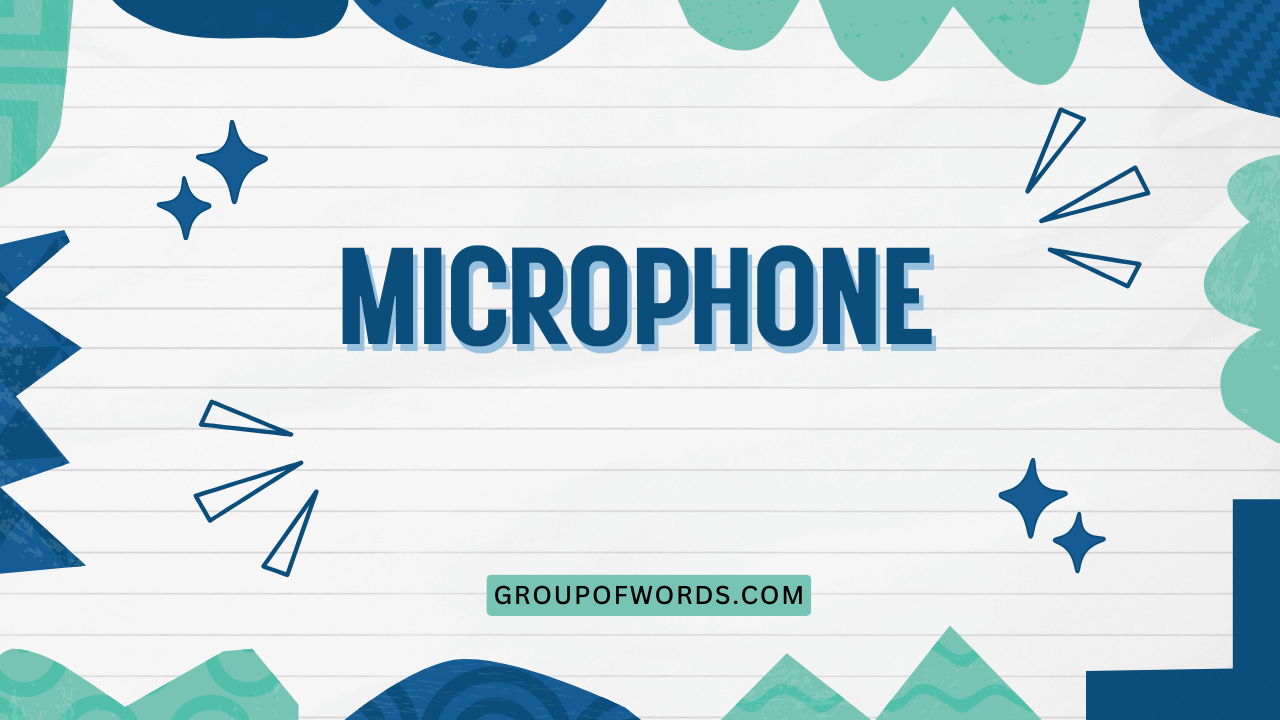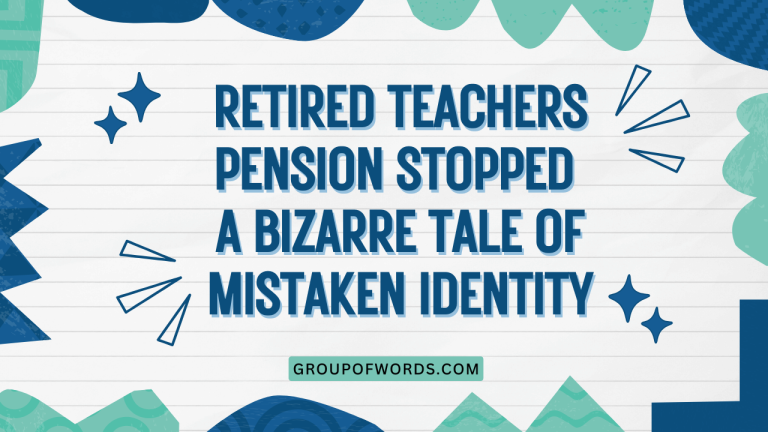Understanding “Much,” “Many,” “A Lot Of,” and “Lots Of”
Mastering the use of “much,” “many,” “a lot of,” and “lots of” is crucial for accurate and natural English communication. These quantifiers express the idea of a large quantity, but they are not interchangeable.
Understanding their specific rules and contexts will help you avoid common grammatical errors and enhance your fluency. This article is designed for English learners of all levels, from beginners to advanced, providing clear explanations, numerous examples, and practical exercises to solidify your understanding.
Table of Contents
- Introduction
- Definition and Basic Usage
- Structural Breakdown
- Categories and Variations
- Examples
- Usage Rules
- Common Mistakes
- Practice Exercises
- Advanced Topics
- FAQ
- Conclusion
Introduction
Using quantifiers like “much,” “many,” “a lot of,” and “lots of” correctly is essential for clear and effective communication in English. These words indicate quantity, but their usage depends on whether the noun they modify is countable or uncountable, and the type of sentence (affirmative, negative, or interrogative).
Mastering these nuances will significantly improve your grammatical accuracy and help you express yourself more precisely. This guide provides a comprehensive overview, complete with examples and exercises, to help you confidently use these quantifiers.
Definition and Basic Usage
The words “much,” “many,” “a lot of,” and “lots of” are all quantifiers, meaning they specify an amount or quantity. However, their usage varies depending on the type of noun they modify.
It is crucial to understand the distinction between countable and uncountable nouns to use these quantifiers correctly.
Much is used with uncountable nouns (also known as mass nouns), which are things that cannot be counted individually (e.g., water, time, money). Many is used with countable nouns, which are things that can be counted individually (e.g., books, people, cars). A lot of and lots of are more versatile and can be used with both countable and uncountable nouns, especially in informal contexts. They generally express a large quantity.
Structural Breakdown
The structure of sentences using these quantifiers is relatively straightforward. They typically precede the noun they modify, acting as adjectives. The basic structure is: Quantifier + Noun.
For example:
- Much time (Much is the quantifier, time is the uncountable noun)
- Many books (Many is the quantifier, books is the countable noun)
- A lot of water (A lot of is the quantifier, water is the uncountable noun)
- Lots of apples (Lots of is the quantifier, apples is the countable noun)
In questions, the structure might change slightly, with the quantifier often appearing at the beginning of the sentence or clause. For example: “How much money do you need?” or “How many students are in the class?”
Categories and Variations
Much vs. Many
“Much” and “many” are the most restrictive of these quantifiers. “Much” is exclusively used with uncountable nouns, while “many” is exclusively used with countable nouns.
Understanding this distinction is fundamental to their correct usage.
Uncountable Nouns (with “Much”): These nouns refer to things that cannot be counted as individual units. Examples include: water, air, sand, information, advice, furniture, time, money, love, happiness.
Countable Nouns (with “Many”): These nouns refer to things that can be counted as individual units. Examples include: books, cars, people, students, chairs, apples, ideas, problems, days, countries.
“A Lot Of” vs. “Lots Of”
“A lot of” and “lots of” are more flexible than “much” and “many.” They can be used with both countable and uncountable nouns. The main difference between them is stylistic: “lots of” is generally considered more informal than “a lot of.” In most situations, they are interchangeable.
With Uncountable Nouns: “A lot of” and “lots of” can be used with uncountable nouns such as water, time, and money.
With Countable Nouns: They can also be used with countable nouns such as books, cars, and people.
Examples
Examples with “Much”
The following table provides examples of how “much” is used with uncountable nouns in different sentence structures. Notice that “much” is often used in negative and interrogative sentences.
| Sentence Type | Example |
|---|---|
| Negative | I don’t have much time to finish the project. |
| Negative | There isn’t much sugar left in the jar. |
| Negative | He doesn’t have much experience in this field. |
| Negative | She doesn’t drink much coffee in the morning. |
| Interrogative | How much money do you need for the trip? |
| Interrogative | Is there much traffic on the road today? |
| Interrogative | How much effort did you put into this presentation? |
| Interrogative | How much water do you drink per day? |
| Affirmative (less common) | There is much debate about this issue. (Formal) |
| Affirmative (less common) | I appreciate much of what you’ve done. (Formal) |
| Negative | They don’t have much confidence in the team’s ability. |
| Negative | We didn’t receive much help from the organization. |
| Interrogative | How much knowledge do you have about this topic? |
| Interrogative | Is there much interest in the proposed changes? |
| Affirmative (less common) | Much of the progress has been attributed to their hard work. |
| Negative | He doesn’t show much enthusiasm for the new project. |
| Interrogative | How much importance do you place on punctuality? |
| Negative | I don’t have much patience for his excuses. |
| Interrogative | How much space do we have left in the suitcase? |
| Affirmative (less common) | There is much room for improvement in this area. |
| Negative | She doesn’t get much sleep during the week. |
| Interrogative | How much damage was caused by the storm? |
| Negative | We don’t need much equipment for this experiment. |
| Interrogative | How much support did you receive from your family? |
| Negative | They don’t have much faith in the government’s promises. |
| Interrogative | How much respect do you have for your elders? |
Examples with “Many”
The following table provides examples of how “many” is used with countable nouns in different sentence structures. Like “much,” “many” is also frequently used in negative and interrogative sentences.
| Sentence Type | Example |
|---|---|
| Negative | I don’t have many friends in this city. |
| Negative | There aren’t many apples left in the basket. |
| Negative | He doesn’t know many people at the party. |
| Negative | She doesn’t have many books on that subject. |
| Interrogative | How many cars are parked outside? |
| Interrogative | Are there many students in the library? |
| Interrogative | How many times have you visited this place? |
| Interrogative | How many cookies did you eat? |
| Affirmative (less common) | Many people attended the concert. (More formal, “a lot of” is more common) |
| Affirmative (less common) | Many of the employees are satisfied with their jobs. (Formal) |
| Negative | They don’t have many opportunities to travel abroad. |
| Negative | We didn’t face many challenges during the project. |
| Interrogative | How many languages do you speak fluently? |
| Interrogative | Are there many flights available to that destination? |
| Affirmative (less common) | Many of the participants expressed their gratitude. |
| Negative | He doesn’t have many reasons to be unhappy. |
| Interrogative | How many goals did the team score in the game? |
| Negative | I don’t have many siblings living nearby. |
| Interrogative | How many pages are there in the book? |
| Affirmative (less common) | Many solutions were proposed to address the problem. |
| Negative | She doesn’t win many awards, despite her hard work. |
| Interrogative | How many hours do you typically work each week? |
| Negative | We don’t need many ingredients for this recipe. |
| Interrogative | How many volunteers are needed for the event? |
| Negative | They don’t have many complaints about the service. |
| Interrogative | How many questions are on the test? |
Examples with “A Lot Of”
The following table provides examples of how “a lot of” is used with both countable and uncountable nouns. “A lot of” is more common in affirmative sentences than “much” or “many.”
| Noun Type | Sentence Type | Example |
|---|---|---|
| Uncountable | Affirmative | I have a lot of work to do today. |
| Uncountable | Negative | I don’t have a lot of free time this week. |
| Uncountable | Interrogative | Do you need a lot of help with the project? |
| Countable | Affirmative | There are a lot of students in the classroom. |
| Countable | Negative | There aren’t a lot of cars on the road right now. |
| Countable | Interrogative | Are there a lot of options to choose from? |
| Uncountable | Affirmative | She has a lot of experience in marketing. |
| Uncountable | Negative | He doesn’t have a lot of patience with slow computers. |
| Uncountable | Interrogative | Does it require a lot of effort to learn a new language? |
| Countable | Affirmative | We have a lot of books in our library. |
| Countable | Negative | They don’t have a lot of pets because of their small apartment. |
| Countable | Interrogative | Are there a lot of tourists visiting the city this summer? |
| Uncountable | Affirmative | I drank a lot of water after the workout. |
| Uncountable | Negative | She didn’t use a lot of sugar in the recipe. |
| Uncountable | Interrogative | Did you spend a lot of money on the new furniture? |
| Countable | Affirmative | He has a lot of cousins in Canada. |
| Countable | Negative | We didn’t see a lot of animals at the zoo. |
| Countable | Interrogative | Are there a lot of restaurants near the hotel? |
| Uncountable | Affirmative | There’s a lot of sunshine today. |
| Uncountable | Negative | There isn’t a lot of snow this winter. |
| Uncountable | Interrogative | Is there a lot of interest in the conference? |
| Countable | Affirmative | She received a lot of gifts for her birthday. |
| Countable | Negative | They didn’t make a lot of mistakes on the exam. |
| Countable | Interrogative | Are there a lot of trees in the park? |
Examples with “Lots Of”
The following table provides examples of how “lots of” is used with both countable and uncountable nouns. “Lots of” is similar to “a lot of” but is considered more informal.
It is also more common in affirmative sentences.
| Noun Type | Sentence Type | Example |
|---|---|---|
| Uncountable | Affirmative | I have lots of work to do. |
| Uncountable | Negative | I don’t have lots of time to spare. |
| Uncountable | Interrogative | Do you need lots of help with your homework? |
| Countable | Affirmative | There are lots of people at the concert. |
| Countable | Negative | There aren’t lots of birds in the sky today. |
| Countable | Interrogative | Are there lots of different types of flowers in the garden? |
| Uncountable | Affirmative | She has lots of experience in customer service. |
| Uncountable | Negative | He doesn’t have lots of patience for technical issues. |
| Uncountable | Interrogative | Does it require lots of dedication to become a professional musician? |
| Countable | Affirmative | We have lots of interesting books in our collection. |
| Countable | Negative | They don’t have lots of toys because they prefer outdoor activities. |
| Countable | Interrogative | Are there lots of opportunities for career advancement in this company? |
| Uncountable | Affirmative | I drank lots of juice after playing sports. |
| Uncountable | Negative | She didn’t put lots of salt in the soup. |
| Uncountable | Interrogative | Did you spend lots of energy cleaning the house? |
| Countable | Affirmative | He has lots of relatives living in Europe. |
| Countable | Negative | We didn’t see lots of stars in the sky due to the city lights. |
| Countable | Interrogative | Are there lots of cafes in this neighborhood? |
| Uncountable | Affirmative | There is lots of sunlight today. |
| Uncountable | Negative | There isn’t lots of crime in this city. |
| Uncountable | Interrogative | Is there lots of demand for this product? |
| Countable | Affirmative | She received lots of compliments on her dress. |
| Countable | Negative | They didn’t have lots of choices in the menu. |
| Countable | Interrogative | Are there lots of birds here? |
Combined Examples
This section provides examples that compare and contrast the use of “much,” “many,” “a lot of,” and “lots of” in similar contexts.
| Quantifier | Example | Explanation |
|---|---|---|
| Much | How much milk is in the fridge? | “Milk” is uncountable, so “much” is appropriate. |
| Many | How many eggs do we need? | “Eggs” are countable, so “many” is appropriate. |
| A lot of | We have a lot of milk. | “A lot of” is used with uncountable “milk” in an affirmative sentence. |
| Lots of | We have lots of eggs. | “Lots of” is used with countable “eggs” in an affirmative sentence. |
| Much | I don’t have much information about that. | “Information” is uncountable, so “much” is correct. |
| Many | I don’t have many details about the event. | “Details” are countable, so “many” is correct. |
| A lot of | She has a lot of knowledge in that area. | “A lot of” is used with uncountable “knowledge” in an affirmative sentence. |
| Lots of | She has lots of ideas for the project. | “Lots of” is used with countable “ideas” in an affirmative sentence. |
| Much | Is there much traffic in the city center? | “Traffic” is uncountable, so “much” is used in the question. |
| Many | Are there many cars on the road? | “Cars” are countable, so “many” is used in the question. |
| A lot of | There is a lot of sunshine today. | “A lot of” is used with uncountable “sunshine” in an affirmative sentence. |
| Lots of | There are lots of clouds in the sky. | “Lots of” is used with countable “clouds” in an affirmative sentence. |
| Much | He doesn’t have much patience. | “Patience” is uncountable, so “much” is appropriate in a negative sentence. |
| Many | He doesn’t have many problems. | “Problems” are countable, so “many” is correct in a negative sentence. |
| A lot of | They have a lot of respect for their elders. | “A lot of” is used with uncountable “respect” in an affirmative sentence. |
| Lots of | They have lots of reasons to be happy. | “Lots of” is used with countable “reasons” in an affirmative sentence. |
| Much | How much progress has been made? | “Progress” is uncountable, so “much” is appropriate in an interrogative sentence. |
| Many | How many steps are in the process? | “Steps” are countable, so “many” is appropriate in an interrogative sentence. |
| A lot of | We need a lot of support to complete the project. | “A lot of” is used with uncountable “support” in an affirmative sentence. |
| Lots of | We need lots of volunteers for the event. | “Lots of” is used with countable “volunteers” in an affirmative sentence. |
Usage Rules
Countable vs. Uncountable Nouns
The most important rule is distinguishing between countable and uncountable nouns. “Much” is used exclusively with uncountable nouns, while “many” is used exclusively with countable nouns. “A lot of” and “lots of” can be used with both, providing more flexibility.
Countable Nouns: Can be counted individually and have a plural form (e.g., one book, two books; one car, three cars).
Uncountable Nouns: Cannot be counted individually and typically do not have a plural form (e.g., water, sand, air, information). You can’t say “one water” or “two sands.” Instead, you quantify them using units of measurement (e.g., a bottle of water, a grain of sand) or with quantifiers like “much” or “a little.”
Affirmative, Negative, and Interrogative Sentences
The type of sentence also influences the choice of quantifier. While “a lot of” and “lots of” are common in affirmative sentences, “much” and “many” are more frequently used in negative and interrogative sentences, especially in more formal contexts.
Affirmative Sentences: “A lot of” and “lots of” are generally preferred (e.g., “I have a lot of friends,” not “I have many friends,” which sounds less natural).
Negative Sentences: “Much” and “many” are common (e.g., “I don’t have much time,” “I don’t have many books”). “A lot of” and “lots of” are also acceptable but might sound slightly less formal (e.g., “I don’t have a lot of time”).
Interrogative Sentences: “Much” and “many” are frequently used (e.g., “How much money do you have?” “How many siblings do you have?”). “A lot of” is also possible, but less common (e.g., “Do you need a lot of help?”).
Formal vs. Informal Contexts
The level of formality also plays a role. “Much” and “many” are generally considered more formal than “a lot of” and “lots of.” “Lots of” is the most informal of the four.
Formal Situations: In formal writing or speech, “much” and “many” are often preferred, especially in negative and interrogative sentences. For example, in an academic paper, you might write, “There is not much evidence to support this claim,” rather than, “There isn’t a lot of evidence…”
Informal Situations: In casual conversation with friends or family, “a lot of” and “lots of” are perfectly acceptable and often sound more natural. For example, you might say, “I have lots of things to do tonight.”
Exceptions to the Rules
While the guidelines above are generally reliable, there are some exceptions and nuances. For instance, “much” can be used in affirmative sentences, especially in formal contexts or with certain adverbs (e.g., “I very much appreciate your help”).
Also, sometimes the choice depends on emphasis or style.
Common Mistakes
One of the most common mistakes is using “much” with countable nouns and “many” with uncountable nouns. Here are some examples of common errors and their corrections:
| Incorrect | Correct | Explanation |
|---|---|---|
| I have much books. | I have many books. | “Books” is countable, so “many” should be used. |
| How many water do you drink? | How much water do you drink? | “Water” is uncountable, so “much” should be used. |
| There are many traffic on the road. | There is much traffic on the road. | “Traffic” is uncountable, so “much” should be used. |
| I don’t have a lot of friends. | I don’t have many friends. OR I don’t have a lot of friends. | Both are acceptable, but “many” is slightly more formal. |
| He has lots of knowledge. | He has a lot of knowledge. OR He has lots of knowledge. | Both are acceptable, but “a lot of” is slightly more formal. |
| She gave me a many advice. | She gave me much advice. OR She gave me a lot of advice. | “Advice” is uncountable, so “much” or “a lot of” should be used. |
| They spent many money on vacation. | They spent much money on vacation. OR They spent a lot of money on vacation. | “Money” is uncountable, so “much” or “a lot of” should be used. |
| We didn’t have much chairs. | We didn’t have many chairs. OR We didn’t have a lot of chairs. | “Chairs” is countable, so “many” or “a lot of” should be used. |
| Is there many sugar in the tea? | Is there much sugar in the tea? | “Sugar” is uncountable, so “much” should be used. |
| I have many time to finish the project. | I have much time to finish the project. OR I have a lot of time to finish the project. | “Time” is uncountable, so “much” or “a lot of” should be used. |
Practice Exercises
Exercise 1: Choose the Correct Quantifier
Choose the correct quantifier (“much,” “many,” “a lot of,” or “lots of”) to complete each sentence.
| Question | Answer Choices | Correct Answer |
|---|---|---|
| 1. How ______ coffee do you drink per day? | a) much b) many c) a lot of d) lots of | a) much |
| 2. There aren’t ______ people at the meeting. | a) much b) many c) a lot of d) lots of | b) many |
| 3. I have ______ work to do this weekend. | a) much b) many c) a lot of d) lots of | c) a lot of OR d) lots of |
| 4. Do you need ______ help with that? | a) much b) many c) a lot of d) lots of | a) much |
| 5. He doesn’t have ______ friends in his new city. | a) much b) many c) a lot of d) lots of | b) many |
| 6. She spent ______ money on her vacation. | a) much b) many c) a lot of d) lots of | a) much OR c) a lot of OR d) lots of |
| 7. Are there ______ opportunities for advancement in this company? | a) much b) many c) a lot of d) lots of | b) many |
| 8. I don’t have ______ patience for his excuses. | a) much b) many c) a lot of d) lots of | a) much |
| 9. We have ______ apples in the basket. | a) much b) many c) a lot of d) lots of | c) a lot of OR d) lots of |
| 10. How ______ time do we have left? | a) much b) many c) a lot of d) lots of | a) much |
Exercise 2: Fill in the Blanks
Fill in the blanks with “much,” “many,” “a lot of,” or “lots of” to complete the sentences.
| Question | Correct Answer |
|---|---|
| 1. There isn’t ______ rain this year. | much |
| 2. How ______ books do you read each month? | many |
| 3. I have ______ things to do before I leave. | a lot of OR lots of |
| 4. Do you need ______ information about the product? | much |
| 5. She doesn’t have ______ experience in this field. | much |
| 6. They have ______ reasons to celebrate. | a lot of OR lots of |
| 7. How ______ people are coming to the party? | many |
| 8. I don’t have ______ energy to go out tonight. | much |
| 9. We need ______ sugar for the recipe. | much |
| 10. There are ______ opportunities to learn new skills here. | a lot of OR lots of |
Exercise 3: Error Correction
Identify and correct the errors in the following sentences. If the sentence is correct, write “Correct.”
| Question | Correct Answer |
|---|---|
| 1. I have much friends in this city. | I have many friends in this city. |
| 2. How many water do you drink every day? | How much water do you drink every day? |
| 3. She gave me a many advice. | She gave me much advice. OR She gave me a lot of advice. |
| 4. There is a lot of traffic on the road. | Correct |
| 5. I don’t have many time to finish the project. | I don’t have much time to finish the project. |
| 6. He has lots of knowledge about the subject. | Correct |
| 7. Are there much students in the class? | Are there many students in the class? |
| 8. We didn’t see a lot of animals at the zoo. | Correct |
| 9. How much books do you own? | How many books do you own? |
| 10. I don’t need much ingredients for this cake. | I don’t need many ingredients for this cake. |
Advanced Topics
Advanced Usage of “Much”
While “much” is typically used in negative and interrogative sentences, it can also be used in affirmative sentences, particularly in formal contexts or with certain adverbs. This usage often adds emphasis or formality to the statement.
- With Adverbs: “Much” is often used with adverbs like “very,” “so,” “too,” and “as” in affirmative sentences to intensify the meaning.
- Example: “I very much appreciate your help.”
- Example: “The team is much improved this season.”
- Formal Contexts: In formal writing or speech, “much” can be used to express a large quantity, especially when emphasizing a point.
- Example: “Much of the success is attributed to hard work.”
- Example: “There is much debate surrounding this issue.”
- In Comparative Structures: “Much” can be used to indicate a significant difference in comparative statements.
- Example: “This car is much faster than the old one.”
- Example: “The new policy is much more effective.”
Advanced Usage of “Many”
Similar to “much,” “many” can also be used in more nuanced ways to add emphasis or formality to a sentence. While typically used in negative and interrogative sentences, affirmative sentences can also incorporate “many” for specific effects.
- Formal Affirmative Statements: In formal writing, “many” can be used to highlight the large number of something, often emphasizing a significant quantity.
- Example: “Many scholars have studied this phenomenon.”
- Example: “Many improvements have been made to the system.”
- With “Too” and “So”: “Too many” and “so many” are used to express an excessive quantity, often with negative connotations.
- Example: “There are too many rules in this organization.”
- Example: “So many people are affected by this policy.”
- In Rhetorical Questions: “Many” can be used in rhetorical questions to emphasize the unlikelihood or impossibility of something.
- Example: “How many times do I have to tell you the same thing?”
- Example: “How many people can honestly say they predicted this outcome?”
Quantifiers Followed by “Of”
When quantifiers are followed by “of,” they are typically used before a determiner (such as “the,” “these,” “my”) or a pronoun. This structure allows you to specify which group or portion you are referring to.
- Much of the…: Used with uncountable nouns to refer to a specific portion.
- Example: “Much of the information was outdated.”
- Example: “Much of the work has already been completed.”
- Many of the…: Used with countable nouns to refer to a specific group.
- Example: “Many of the students passed the exam.”
- Example: “Many of the books were damaged in the flood.”
- A lot of the…/Lots of the…: Used with both countable and uncountable nouns to refer to a specific portion, with “lots of” being more informal.
- Example: “A lot of the money was spent on advertising.”
- Example: “Lots of the people enjoyed the performance.”
- With Pronouns: Quantifiers can also be used with pronouns to refer to a portion of a group.
- Example: “Many of us agree with the proposal.”
- Example: “Much of it is still unclear.”
FAQ
Can I use “much” in affirmative sentences?
Yes, but it’s less common and often more formal. It’s frequently used with adverbs like “very,” “so,” “too,” and “as” (e.g., “I very much appreciate your help.”) or in formal contexts (e.g., “Much of the success is attributed to hard work.”).
Is “lots of” the same as “a lot of”?
Yes, they are generally interchangeable and have the same meaning. The main difference is that “lots of” is considered more informal than “a lot of.”
When should I use “much” instead of “a lot of” or “lots of”?
Use “much” primarily with uncountable nouns in negative and interrogative sentences. In affirmative sentences, “a lot of” or “lots of” are generally preferred unless you’re aiming for a formal tone or using adverbs like “very” (e.g., “How much time do you need?” vs.
“I have a lot of time”).
What are some examples of uncountable nouns?
Examples of uncountable nouns include water, air, sand, information, advice, furniture, time, money, love, happiness, and progress. These nouns cannot be counted as individual units.
Can “much” and “many” be used with “of”?
Yes, but they require a determiner (like “the,” “these,” “my”) or a pronoun after “of.” For example, “Much of the work” or “Many of us.”
Conclusion
Mastering the use of “much,” “many,” “a lot of,” and “lots of” is essential for effective and accurate communication in English. By understanding the distinction between countable and uncountable nouns, considering the sentence type (affirmative, negative, or interrogative), and being aware of the level of formality, you can confidently use these quantifiers in a variety of contexts.
Regular practice and attention to these nuances will enhance your fluency and grammatical accuracy, allowing you to express quantity with precision and clarity.






